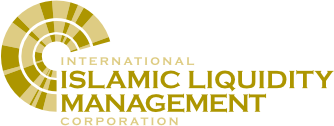POLICIES & PRACTICES
Conducting our business with integrity
The IILM’s Policies & Practices outline its commitment to ethical standards, governance, and operational excellence in the Islamic finance industry.
Anti-Money Laundering Policy
The IILM’s Anti-Money Laundering (AML) Policy establishes strict guidelines and procedures to prevent and detect money laundering and terrorist financing activities within the International Islamic Liquidity Management Corporation (IILM). This policy outlines the responsibilities of the IILM and its employees to comply with relevant laws and regulations, including customer due diligence, reporting suspicious activities, and maintaining accurate records. It also includes regular training and awareness programs to ensure all staff are equipped to recognize and respond to potential AML risks. The policy underscores the IILM’s commitment to maintaining the integrity and security of the global Islamic financial system.
International Sanctions Policy
The IILM’s International Sanctions Policy outlines the procedures and controls the International Islamic Liquidity Management Corporation (IILM) follows to ensure compliance with global sanctions regimes. This policy mandates that the IILM, its employees, and business partners avoid engaging in transactions or activities involving sanctioned countries, entities, or individuals. It includes guidelines for conducting due diligence, screening counterparties, and reporting any potential violations. The policy is designed to safeguard the IILM from legal, financial, and reputational risks, reinforcing its commitment to operating within the boundaries of international laws and maintaining the integrity of its financial operations.
Whistleblowing Policy
The IILM’s Whistleblowing Policy fosters a transparent and ethical environment by enabling employees, service providers, and stakeholders to confidentially report concerns about illegal, unethical, or questionable practices. It outlines detailed procedures for whistleblowing, safeguards whistleblowers and witnesses against retaliation, and ensures investigations are conducted impartially. Anonymous reporting is permitted, but good faith and evidence are required to facilitate fair inquiry. False or malicious allegations are strictly prohibited. The policy emphasises confidentiality, compliance with regulatory frameworks, and the responsibility of implicated parties to participate in due process, upholding the integrity of IILM’s operations and reputation.
No Gift Policy
The IILM’s No Gift Policy prohibits employees and representatives of the International Islamic Liquidity Management Corporation (IILM) from accepting or offering gifts, hospitality, or favors that could influence or appear to influence business decisions. This policy aims to maintain impartiality and prevent conflicts of interest, ensuring that all actions taken by IILM personnel are in the corporation’s best interest. It outlines the exceptions, such as nominal items of minimal value, and provides guidance on how to handle situations where refusing a gift might be culturally sensitive. The policy reinforces the IILM’s commitment to ethical conduct and transparency.
